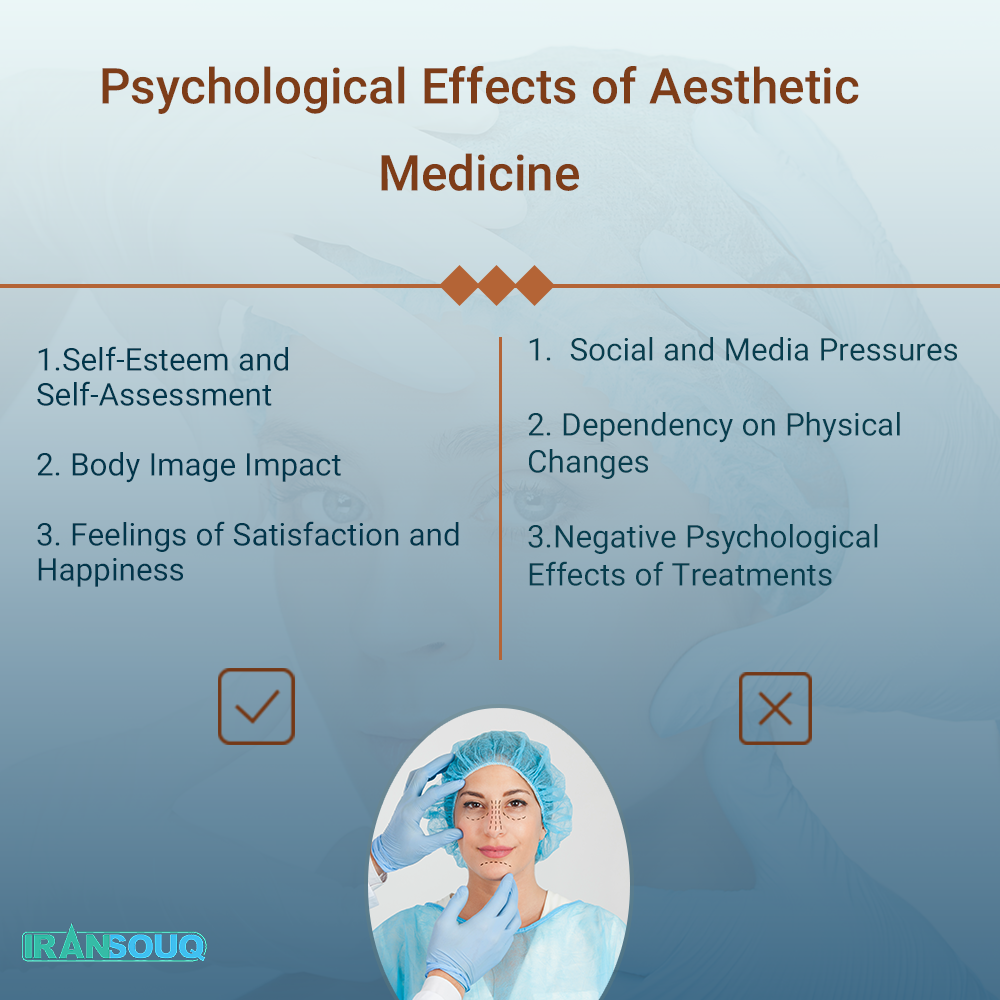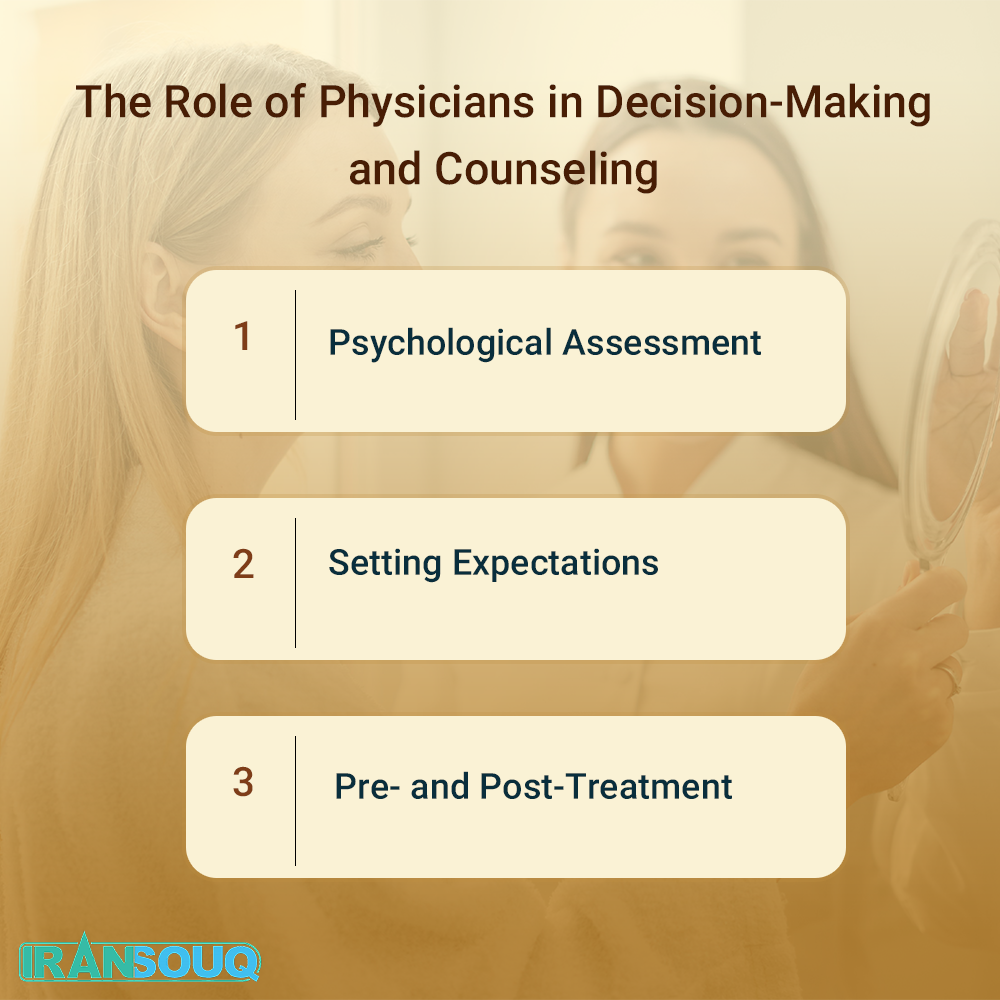Deep Secrets of Beauty: In Search of Self-Image
Aesthetic medicine is not limited to physical changes and beauty; the psychological and social impacts of these treatments are also significant. The decision to undergo aesthetic treatments can affect individuals from various psychological angles, influencing not only their appearance but also their emotions, self-assessment, and even social relationships. This article examines the psychological effects of aesthetic medicine, the challenges and complexities associated with it, and the role of physicians in the decision-making process.
Psychological Effects of Aesthetic Medicine
### 1. Self-Esteem and Self-Assessment
One of the most significant psychological effects of aesthetic medicine is its impact on an individual's self-esteem. Many people who struggle with physical imperfections may feel dissatisfied with themselves. Improving appearance through aesthetic methods can help enhance self-esteem and self-assessment. This boost in confidence can subsequently lead to improvements in social, professional, and personal relationships.
For example, an individual who is dissatisfied with their nose may feel a stronger alignment between their outer appearance and inner self after undergoing rhinoplasty. This change in appearance can lead to positive feelings, such as increased self-confidence.
2. Body Image Impact
Body image refers to how one perceives their body and plays a crucial role in mental health. Individuals who are dissatisfied with their appearance may often suffer from mental disorders like depression, anxiety, and eating disorders. Aesthetic medical treatments can aid individuals in developing a better image of their bodies. For instance, reducing wrinkles, improving skin tone and texture, or enlarging breasts can lead to improved feelings of self-worth.
However, it should be noted that some people may develop a psychological dependency on aesthetic treatments, leading to body image disorders.
3. Feelings of Satisfaction and Happiness
Some studies have shown that individuals who utilize aesthetic services often experience increased feelings of satisfaction and happiness post-treatment. This sense of well-being may arise from physical improvements that enhance one's mood. However, this satisfaction can be temporary and may fade over time. Therefore, feelings of happiness and contentment depend not solely on appearance but also on other psychological and social factors.
Challenges and Ethical Considerations
1. Social and Media Pressures
Today, media and social networks play a significant role in shaping beauty standards. The images published in media often present unrealistic standards of beauty, placing individuals under pressure to make physical changes. These pressures can lead to the development of mental health issues like anxiety and depression.
In this context, physicians must provide careful and responsible consultations to ensure that patients make informed decisions and are aware of the negative impacts of media on their mental health.
2. Dependency on Physical Changes
In some cases, individuals may seek continuous improvement in their looks through repeated surgeries or other aesthetic treatments. This dependency on physical changes can lead to mental health disorders such as body dysmorphic disorder or addiction to cosmetic surgery. In such cases, individuals may constantly feel the need for further changes, even if previous alterations were seemingly successful.
3. Negative Psychological Effects of Treatments
Alongside the benefits, some individuals may face new psychological challenges after treatment. For example, if the results of aesthetic procedures do not meet an individual's expectations or if there are unexpected side effects, they may experience depression, anxiety, or regret. Therefore, thorough pre-treatment consultations and realistic expectation management are crucial.

The Role of Physicians in Decision-Making and Counseling
Aesthetic physicians need to be trained not only in medical skills but also in psychological assessment of their patients. This is especially vital for individuals who may be influenced by social pressures or have a negative body image.
1. Psychological Assessment
Physicians should conduct a thorough assessment of a patient's mental health before performing any aesthetic treatments. If mental health disorders such as anxiety, depression, or body image issues are present, the physician should refer the patient to a psychologist or counselor to prevent aesthetic treatments or to ensure that such treatments are carried out with greater sensitivity.
2. Setting Expectations
One of the most important responsibilities of aesthetic physicians is to set realistic and achievable expectations for patients. Patients should understand that aesthetic treatments cannot resolve all psychological or social issues, and that physical changes do not always correlate with inner changes.
3. Pre- and Post-Treatment Counseling
Physicians should support their patients throughout the treatment process, and if a patient experiences negative feelings or regret, they should help them cope with those emotions. This counseling may include speaking with a psychologist or counselor.

Psychology in aesthetic medicine has complex dimensions that must be carefully evaluated. These treatments can positively affect self-esteem and body image, but in some cases, they can also lead to new psychological challenges. Physicians must provide careful and responsible consultations and help patients make informed decisions. Ultimately, aesthetic medicine should be performed with consideration for individual mental health needs and genuine requirements, rather than merely based on appearance standards.




